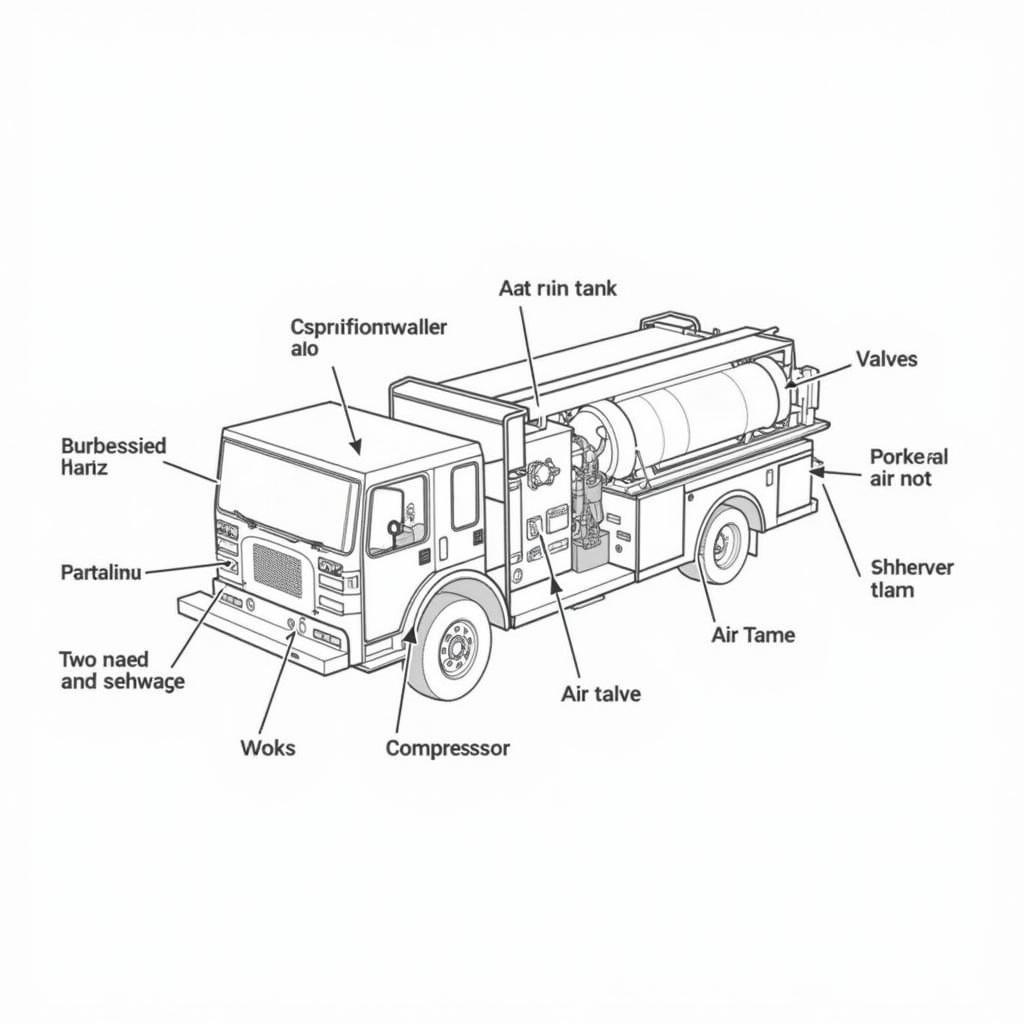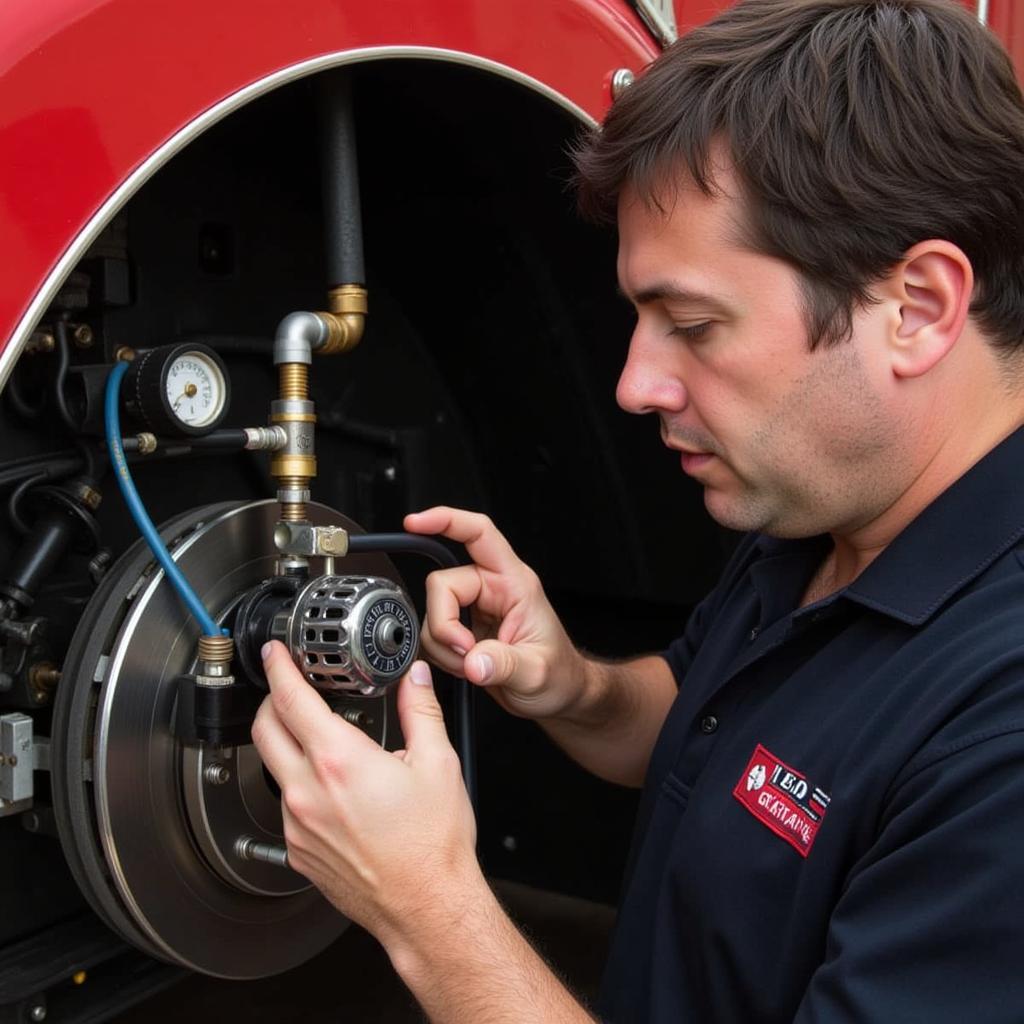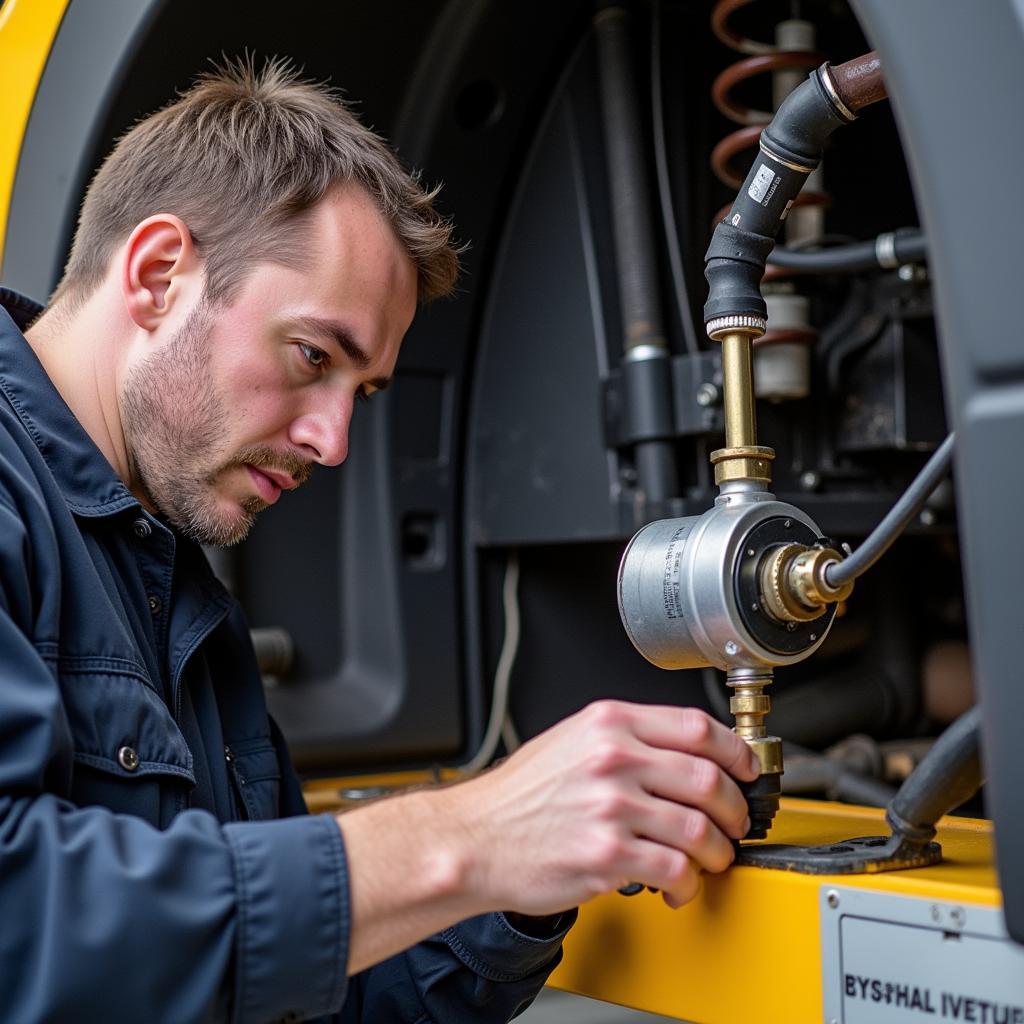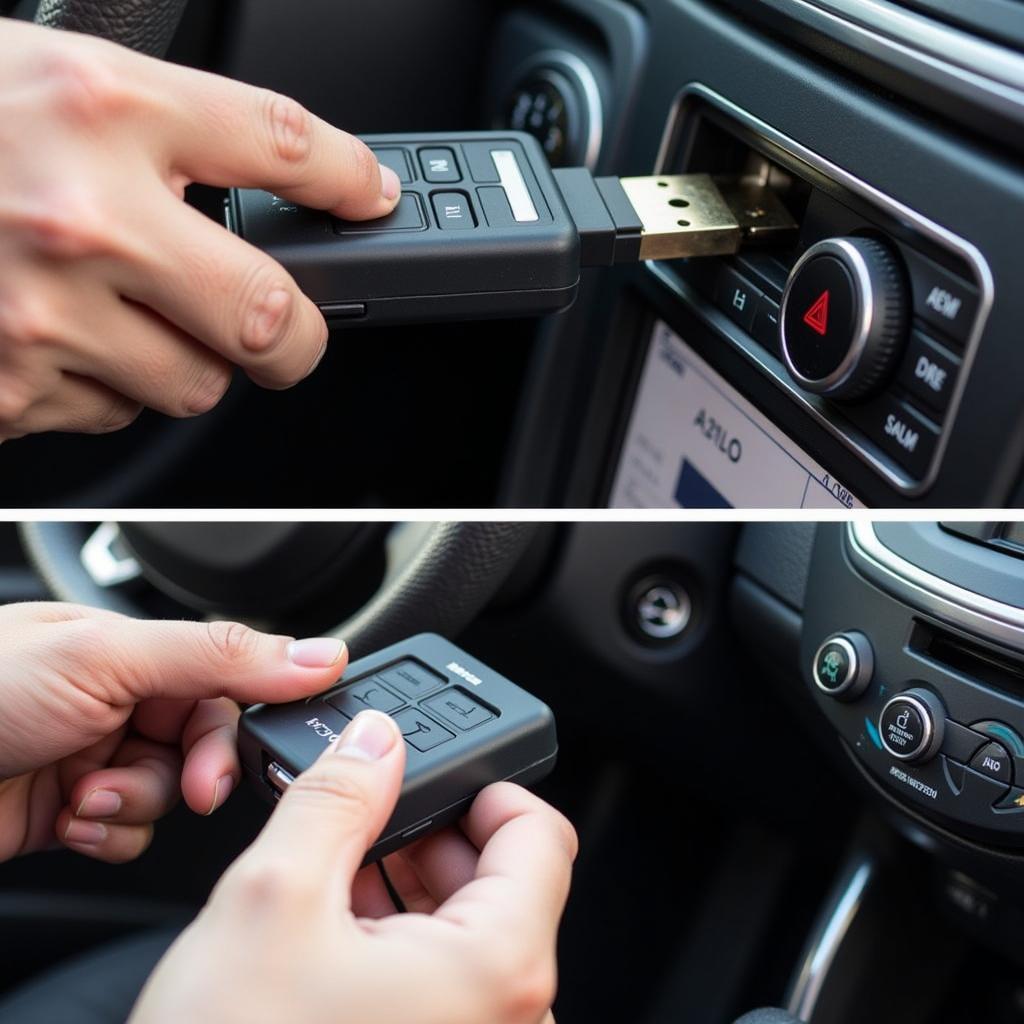The dreaded 2010 Spartan fire truck air brake buzzer warning – a sound no firefighter wants to hear. This piercing alarm signals a potential issue with your truck’s air brake system, a critical component for safe operation. Understanding the causes and troubleshooting steps for this warning is crucial for maintaining your fire truck’s readiness and ensuring the safety of your crew. This comprehensive guide delves into the common culprits behind the 2010 Spartan fire truck air brake buzzer, providing practical solutions and expert insights to help you address this issue effectively.
Understanding the Air Brake System and its Buzzer
The air brake system in a 2010 Spartan fire truck is a complex network of components working together to provide reliable stopping power. The buzzer serves as an audible warning system, alerting the driver to potential problems before they escalate into dangerous situations. It’s activated when certain parameters fall outside the acceptable range, signaling a need for immediate attention. Ignoring the buzzer can lead to brake failure, jeopardizing safety and potentially causing serious accidents.
Common Causes of the Air Brake Buzzer Warning
Several factors can trigger the air brake buzzer in a 2010 Spartan fire truck. These include low air pressure, leaks in the system, faulty valves, worn brake shoes, and issues with the buzzer itself. Identifying the root cause is the first step towards resolving the problem and silencing that annoying alarm.
-
Low Air Pressure: This is perhaps the most frequent cause. A leak in the system, a malfunctioning compressor, or excessive air consumption can all lead to low air pressure.
-
Air Leaks: Leaks can occur in various parts of the system, including air lines, fittings, and even the air tanks themselves. A thorough inspection is crucial to pinpoint the leak’s location.
-
Faulty Valves: Malfunctioning valves can disrupt the proper flow of air within the system, triggering the buzzer. This could involve the foot brake valve, the quick release valve, or other control valves.
-
Worn Brake Shoes: Excessively worn brake shoes can cause increased air consumption and trigger the low air pressure warning.
-
Malfunctioning Buzzer: In some cases, the buzzer itself may be faulty, triggering the alarm even when there’s no actual problem with the air brake system.
 2010 Spartan Fire Truck Air Brake System Diagram
2010 Spartan Fire Truck Air Brake System Diagram
Troubleshooting the Air Brake Buzzer
Addressing the air brake buzzer warning requires a systematic approach. Start by checking the air pressure gauge. If it’s low, inspect the air compressor for proper operation. Listen for leaks and visually inspect air lines and fittings for signs of damage or wear. Check the brake shoes for excessive wear and ensure they’re adjusted correctly.
Step-by-Step Guide to Diagnosing the Problem
- Check Air Pressure: Verify the air pressure gauge reading. Is it within the acceptable range?
- Inspect Air Compressor: Listen for unusual noises and check for leaks around the compressor.
- Locate Leaks: Use soapy water to check for leaks in air lines and fittings. Listen for hissing sounds.
- Examine Valves: Inspect valves for proper operation. Are they sticking or leaking?
- Check Brake Shoes: Measure brake shoe thickness and ensure they’re adjusted correctly.
 Inspecting Air Brake System Components for Leaks and Damage
Inspecting Air Brake System Components for Leaks and Damage
Remote Diagnostics and Software Solutions
In certain situations, remote diagnostics and software solutions can be invaluable in pinpointing the cause of the air brake buzzer warning. Specialized software can access the truck’s electronic control unit (ECU) and retrieve diagnostic trouble codes (DTCs). These codes provide specific insights into the nature of the problem, facilitating quicker and more accurate troubleshooting. Remote programming can also be employed to update software and address certain issues without requiring physical access to the vehicle.
“Remote diagnostics have revolutionized how we troubleshoot air brake issues,” says John Miller, a veteran automotive diagnostic technician with over 20 years of experience. “We can access real-time data and identify problems much faster than traditional methods.”
Preventive Maintenance for Air Brake Systems
Regular maintenance is key to preventing air brake problems and avoiding the dreaded buzzer. This includes routine air dryer cartridge replacement, draining air tanks to remove moisture and contaminants, and regular inspection of air lines, fittings, and valves. Proper lubrication of moving parts and timely replacement of worn components can significantly extend the lifespan of the air brake system.
 Routine Maintenance Procedures for the Air Brake System
Routine Maintenance Procedures for the Air Brake System
Conclusion
The 2010 Spartan fire truck air brake buzzer warning is a critical safety feature that should never be ignored. Understanding the potential causes and employing a systematic troubleshooting approach can help you quickly identify and resolve the issue, ensuring the safe and reliable operation of your fire truck. Regular preventative maintenance is essential for minimizing air brake problems and keeping your truck in top condition. Don’t hesitate to seek professional assistance if you encounter persistent or complex issues. “Proactive maintenance is always better than reactive repairs,” advises Sarah Johnson, a certified mechanic specializing in heavy-duty vehicles. “Addressing small issues early on can prevent them from developing into major problems down the line.”
FAQ
- What is the most common cause of the air brake buzzer warning? Low air pressure is typically the most frequent culprit.
- How often should I drain the air tanks? Draining air tanks daily is recommended to remove moisture and contaminants.
- Can I drive the truck if the buzzer is sounding? It’s highly discouraged to drive with the air brake buzzer active, as it indicates a potential safety hazard.
- How do I locate air leaks in the system? Using soapy water and listening for hissing sounds can help pinpoint the location of air leaks.
- What are diagnostic trouble codes (DTCs)? DTCs are codes stored in the vehicle’s ECU that provide specific information about system malfunctions.
- What is the role of the air dryer cartridge? The air dryer cartridge removes moisture from the compressed air, preventing corrosion and extending the lifespan of the system.
- How often should I replace the air dryer cartridge? The air dryer cartridge should typically be replaced annually or as recommended by the manufacturer.



